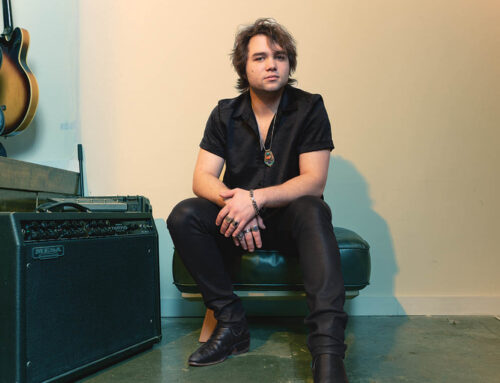On Palm Sunday 1997, the pastors at Preston Hollow Presbyterian Church took a page from the New Testament and began to reach people where they are.
“It’s important to understand what most people are living with,” says Elizabeth McLean, the church’s pastor of mission and evangelism. “And most people have this technology – computers – in their lives.”
The four pastors at the time – Blair Monie, McLean, Dr. Ervin G. Roorda and Rev. Richard Miller, all graduates of Princeton Theological Seminary – already were part of a forward-thinking congregation.
Then a member of the church, Stan Woodward, who was with Audionet.com (later the billion-dollar company Broadcast.com), suggested the church use Broadcast.com to broadcast its services on the web. For nearly 20 years, the church has been broadcasting a live feed over classical music station 101.1 WRR, so the next step didn’t seem like that big of a leap.
“Jesus always said: Be in the world, not of the world,” says McLean, whose family listens to her sermons from their home in North Carolina.
“I look at it as a tool. People freaked out over the printing press: What do you mean you’re going to print Bibles, and everyone’s going to have one? We trust that God is going to work here the way God needs to.”
Head pastor Monie, who joined the congregation in January 1995 after a stint with the largest Presbyterian church in New Jersey, was enthusiastic about reaching a larger audience.
“I’m sure that I pushed the whole idea along,” Monie says, “since I have always been fascinated by technology and what it can do.”
So on Palm Sunday a little more than five years ago, the church had its first internet broadcast, and Monie – an “unabashed gadget guy” – received an email on his wristwatch before the service ended. It was from his daughter in New Jersey who was listening in, and it said simply: “Slam dunk, Dad!”
Today, the church reaches more than 10,000 local radio listeners each week, and countless others who access the webcast and archived services throughout the world.
And from the feedback the church receives, it seems to be a service people are embracing.
“Our missionaries in Africa listen in over the internet,” McLean says. “And a former congregant named Susan Taylor, who was in Germany and having a very difficult time, would listen at 6 p.m. every Sunday night because she said it made her feel closer to home.”
“I listened to it when I was gone on maternity leave,” McLean says. “And there was a lot of intimacy to it because you get everything we get in church – the congregation coughing, papers rustling.”
In May, Monie received the following email from an internet listener in Chicago: “God bless you all. I really like listening to your archives. What I like most of all is that you make available the whole service, unlike other ministries that only make the sermon available. I listen to the services at work as well as at home. The reason is that on some days there are times that seem just as if nothing can go right, and one feels so depressed. Then, if you can listen to a worship service, it seems like one is lifted up and you feel as if God reaches you.”
The church’s foundation, which funds both the radio and webcasting services through an anonymous grant set up by a congregant, sees the venture “clearly as an outreach ministry of the church,” Monie says.
Perhaps surprisingly, the webcasts represent a “minimal” expense, while radio broadcasts cost nearly $60,000 per year to maintain.
It’s the cost of changing lives.
“There was a girl whose mother had died, and her mother was a Christian, and her father wasn’t,” McLean says. “The father wouldn’t let the girl go to church anymore. Well, she couldn’t go and defy her father, but the girl was surfing the internet and found our church and listened to our service, and said it made her feel like she was with her mom again.
“Even if just one or two people are impacted that day, to me it’s worth it.”






